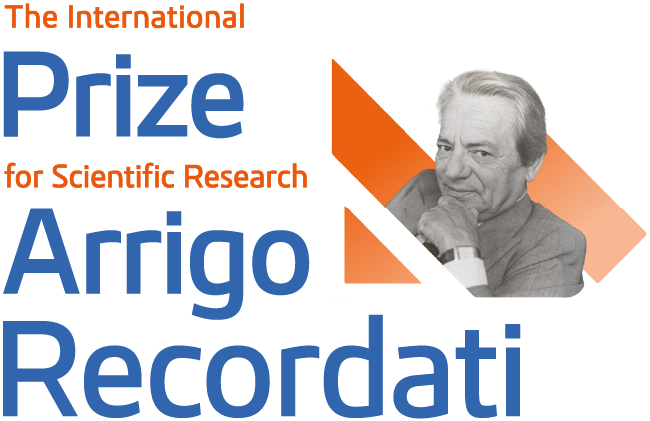how to apply
Application
Apply until
January 31, 2026
Before starting your application
Before submitting your work, please read first the Regulations and the Eligibility Criteria carefully. They will provide you with the necessary information to verify if your project meets the requirements and if you can proceed with submission.
Application Timeline
Project Pre-selection
Final Judging
step 1 - preselection | 21 October, 2025 / 14 APRIL, 2026
step 2 - full application | 15 APRIL, 2026 / 31 July, 2026
step 1 | October 21, 2025 / April 14, 2026
1. Initial Proposal Submission
Initial proposals in English must be submitted via email ( recordatiprize2026@recordati.com ) in the preselection period (check dates here) and should include:
1) Application Form
2) CV
3) Letter of Intent
4) Project Summary Page
Applicants who submit an initial proposal will receive an email confirming receipt. Incomplete applications and those received after the deadline (email receipt date) will not be considered.
The Review Committee will evaluate all initial proposals to determine which applicants will be invited to submit a Full Research Project Application. Projects eligible for Full Research Project Application will be communicated to the Applicant by April 14th, 2026.
Only applicants that have received an invitation to submit a Full Research Project Application can proceed to the second step of the application procedure.
Application Form
Download and complete the application form available here. The application form must be submitted, duly signed and in PDF format along with the CV, the letter of support from the institution and the project summary page.
CV
Applicants must submit a recent CV in English (maximum 3 pages) detailing their highest degree, current title and institutional affiliation. The CV must highlight relevant research experience, publications, collaborations, current grant support and pending grant applications (specifying grant period).
Letter of Intent
The Letter of Intent (maximum 2 pages) is an endorsement of the Principal Investigator and the proposed project by an administrative official of the Applicant’s medical school, hospital, or research institute.
Project Summary Page
In 1200 words (plus one page for figures and/or tables) not including references, succinctly describe the proposed project. Applicants should feel free to add any additional information/supportive data, as needed within the 1200 words limit.
Structure
1. Background, unmet needs, and significance of the project;
2. Specific aims, objectives, or hypothesis;
3. Preliminary studies and data relevant to the proposed project;
4. Experimental design: description of methods and analyses to be performed for basic and translational research projects. If a clinical trial is proposed, present the trial design, with primary & secondary endpoints, as well as a statistical plan;
5. Expected results and expected timeframe for completing the project.
step 2 | April 15, 2026 / June 15, 2026
2. Full Application
Applicants of the selected initials proposals will be invited to submit a Full Research Project Application for competitive review.
Full Applications must be accompanied by the Submission Agreement and submitted in the full selection period. Applications submitted after the deadline will not be considered. The Full Research Project Application should be submitted by June 15th, 2026, at 23:59 CET via email: recordatiprize2026@recordati.com.
Please also note that Full Applications that are incomplete, use a different format, exceed length limitations and/or are not accompanied by the completed and signed Submission Agreement will not be considered.
The Review Committee will assess and select the winning project based on the quality of the proposed research.
The Review Committee will follow the “code of conduct” guidance to ensure that reviews are conducted in a fair and equitable manner. The members of the Review Committee are bound by the confidentiality rules generally applicable to such committees.
The Review Commitee’s decision is final and there is no appeal mechanism.
Structure of the Full Application
The Full Application shall be structured as follows:
1. Abstract of the proposed project
2. Specific aims (project’s specific objectives, goals, etc.)
3. Preliminary studies and progress to date
4. Research Design and Methods
5. References
6. Budget
7. CV of the Principal Investigator
8. Other relevant documents
Guidelines
1. The word limit is 6,000 words (including the abstract).
2. Please use one-sided single-spaced pages and a Times New Roman 12 or Arial 11 font, all margins 0.5 inches / 12.7 mm.
3. Cover page, references, budget, curriculum vitae, figures and other documentation are not included in the word count.
4. Figures should be limited to a maximum of 6 and can be in a smaller font (min 10-point)
5. Please indicate the word count on the cover page.
6. The Full Application needs to be digitally signed.
Submission Agreement
The Submission Agreement is a formal representation by an authorised representative of the Institution, confirming the accuracy of the submitted project information, the acceptance of the Review Committee’s final decision, and the agreement to allocate the grant exclusively to the performance of the awarded project.
The Submission Agreement must be duly completed and signed by the Principal Investigator and the appropriate Institutional Representative, and submitted together with the Full Application.

